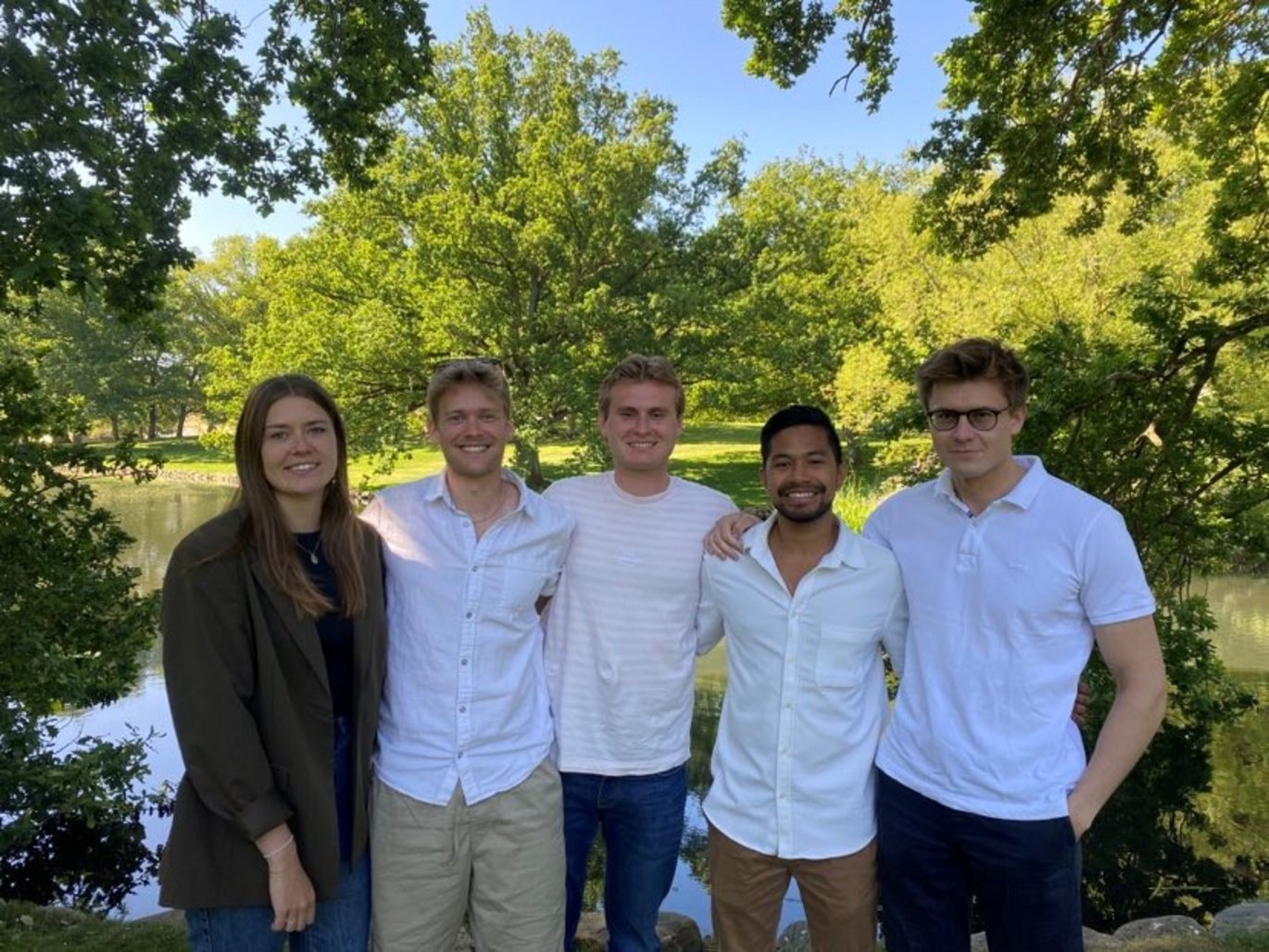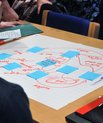Case competition: Improved aftercare service for disadvantaged young people in the City of Aarhus
Camilla Vestergaard, Bjørn Bregendahl, Laust Haue, Gabriel Gonzalez de Castillo and Albert Pedersen are this year’s winners of the Applied Public Policy Case Competition at the Department of Economics and Business Economics.

"Working with this case has been a lot different than attending lectures. We’ve had to work much more independently than we’re used to. And it’s been more frustrating! But it’s probably a good thing to get to know such frustration before you start working with these things in the real world," says Laust Haue, who was the team leader for Social Solutions, this year’s winner of the Applied Public Policy Case Competition.
Together with Camilla Vestergaard, Bjørn Bregendahl, Gabriel Gonzalez de Castillo and Albert Pedersen, Laust Haue spent a substantial part of the spring semester working on a case for the City of Aarhus.
As students on the Applied Public Policy Master’s course at the Department of Economics and Business Economics, this semester they served as consultants for the City of Aarhus and the Danish Authority of Social Services and Housing. They were given the job of reviewing the municipality’s aftercare service aimed at disadvantaged children and young people because of reported low use of this service.
Aftercare is a service aimed at young people who come from placements in children's homes or family care and have to learn how to manage on their own when they turn 18. Aftercare provides the help and support that these young people often need in their transition to adult life.
Due to the low use of the City of Aarhus’ aftercare service, the municipality and the Danish Authority of Social Services and Housing asked the students to look at what a DKK 13-million investment in the area could do for aftercare efforts. Would more people make use of the aftercare service, and would it prolong the period of time participants used the service? The students at the Department of Economics and Business Economics could help predict this.
"What was particularly challenging about working on this case, not just for us, but for the other teams as well, was that it was difficult to provide a solution with the limited data we had available," Laust Haue explains.
The Danish Authority of Social Services and Housing had asked the students to apply the Authority’s own socio-economic investment model, SØM, which is a macro sheet in Excel with data from Statistics Denmark. The model can be used to calculate prices, savings and costs in relation to an intervention. However, the students did not get much help from the scientific literature, so Laust Haue and the Social Solutions team had to be creative and, for example, guess what would be a reliable success rate in the relevant case.
They were therefore very pleased and rather surprised when they won the case competition against the nine other teams.
"We didn't know what was expected of us with this type of assignment, but the lecturer really liked the fact that we included the political landscape in our solution. We thought that the Children First reform would probably have funding available for aftercare efforts, so we recommended that some of the funds to improve the aftercare service were obtained from this source," says Laust Haue.
On 27 June 2023, the group presented its results to representatives from the Danish Authority of Social Services and Housing in Odense.
"They were very interested in hearing about our experience with their socio-economic investment model. However, our ideas for improvement had already been implemented just the week before, or it was not possible to implement them at all. However, they wanted to investigate whether there were other success criteria that they could use," says Laust Haue.
Only time will tell whether Laust Haue and the other students choose a career as a consultant when they graduate with a degree in public policy a year from now:
"It's a good thing you didn't ask us about this right after we handed in our report, because then the answer would probably have been no. We were all mentally exhausted and almost disorientated after the busy weekend up to the deadline - a career in consultancy was the last thing on our minds. But of course I’d like to try what it’s like to do consultancy work in the private sector, but I also really like the interplay between public policy and economics that is part of the public policy programme," he concludes.









